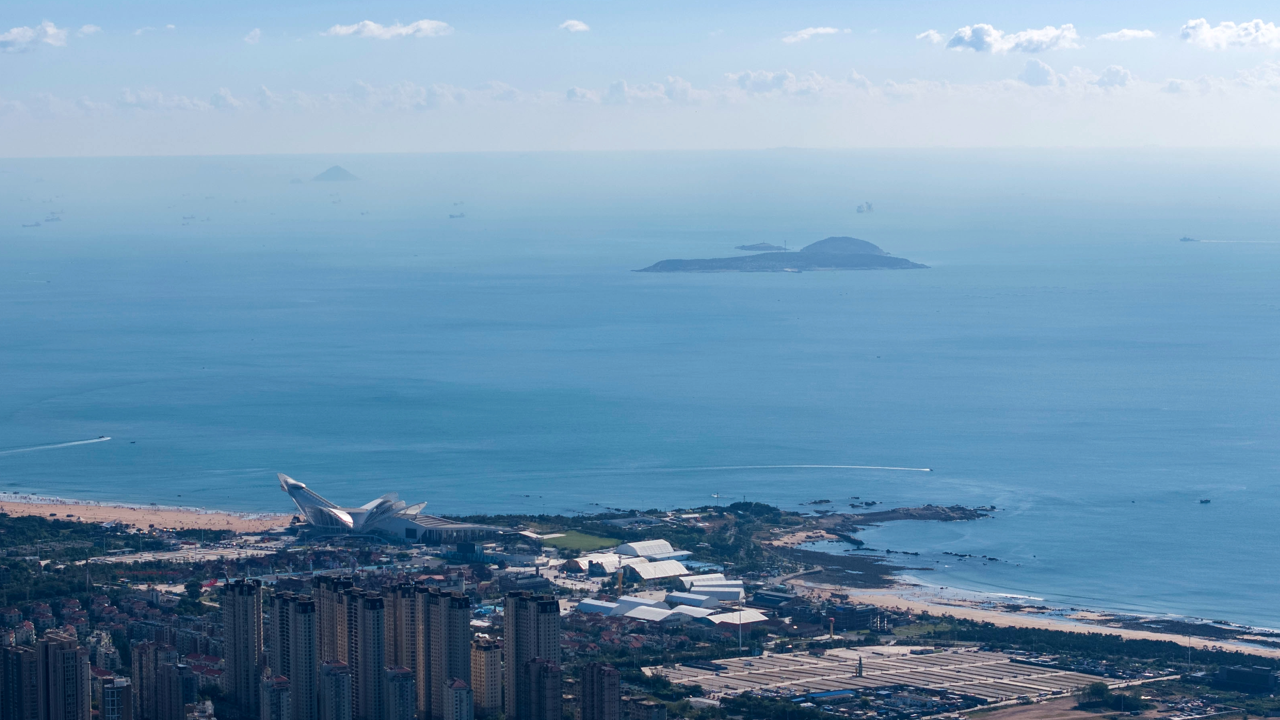
On the coast of the Yellow Sea in Qingdao, East China's Shandong Province, Oct. 2, 2024. Photo: VCG
Recently, certain South Korean media outlets and relevant parties have expressed concerns over China's deep-sea aquaculture facilities in the Yellow Sea, many of which are inconsistent with the facts, the spokesperson of the Chinese Embassy in South Korea said in a statement on Wednesday.
The spokesperson emphasized that China's relevant facilities comply with both domestic and international law and do not violate agreements with South Korea.
Some South Korean media, including The Korea Times, accused China for installing large steel structure in the Yellow Sea, claiming that they were placed in where the "Exclusive Economic Zones" of Korea and China overlap.
The Spokesperson of the Chinese Embassy in South Korea said on Wednesday the truth is that the facilities established by China are deep-sea aquaculture installations located in waters off its own coast, representing lawful use of marine resources.
China's actions are fully consistent with both domestic and international law, do not violate the China-ROK fisheries agreement, and do not affect South Korea's rights under the deal.
The Government of China and the Government of South Korea, in accordance with the relevant provisions of the United Nations Convention on the Law of the Sea of December 10 in 1982, signed the Agreement between the Government of the People's Republic of China and the Government of the Republic of Korea on fisheries on August 3, 2000 in Beijing.
This Agreement aims to conserve and utilize rationally marine biological resources of common concern, maintain normal marine operation order, and strengthen and develop cooperation in the field of fisheries. This cooperative fishing agreement is applicable to the EEZs of both countries in the Yellow Sea, according to the UN Food and Agriculture Organization.
China has adopted rigorous environmental and safety measures to ensure that these facilities pose no risk to the marine environment or navigational safety, said the spokesperson.
China had publicly announced the establishment of the relevant facilities, said the spokesperson.
The spokesperson also said that in response to a question from Yonhap News Agency, Chinese Foreign Ministry spokesperson Mao Ning noted that the situation in the Yellow Sea remains stable, and that China and the South Korea have maintained smooth and effective communication on maritime issues on the press conference on March 18.
The spokesperson stressed that the two sides are in close contact through diplomatic channels.
We hope both countries will continue to enhance dialogue and mutual understanding, avoid unnecessary politicization of the issue, and work together to build the Yellow Sea into a sea of peace, friendship, and cooperation, said the spokesperson.
Global Times




